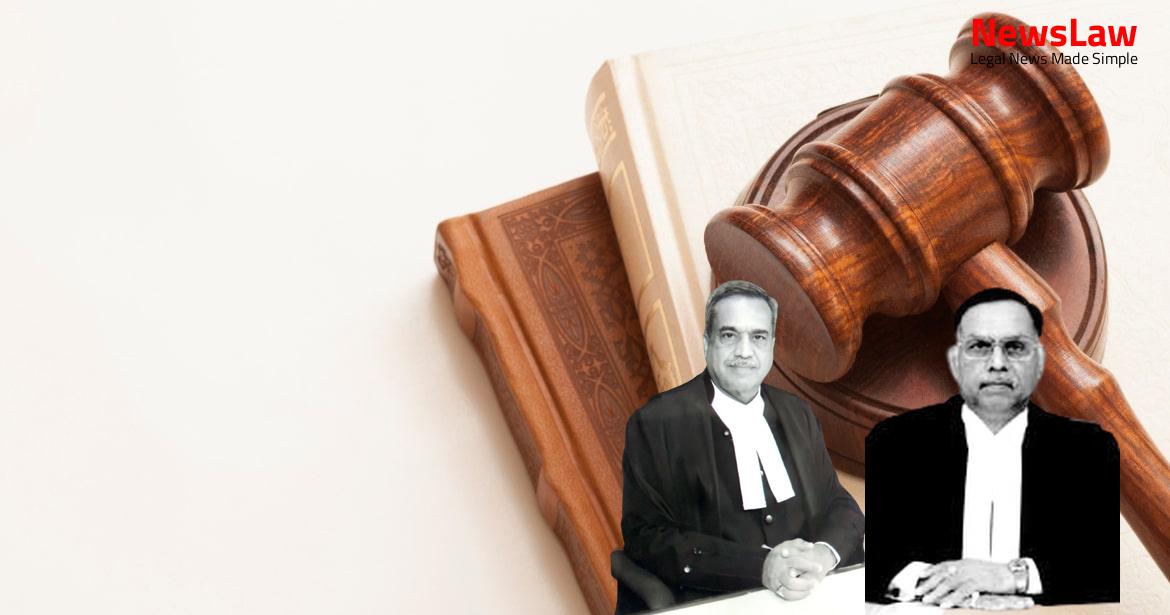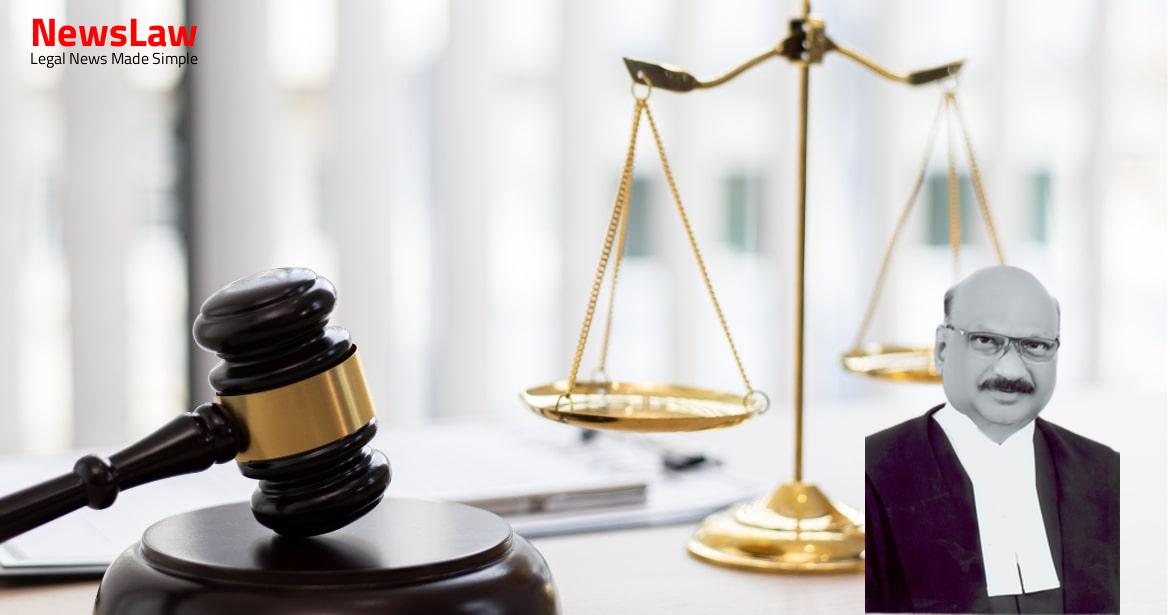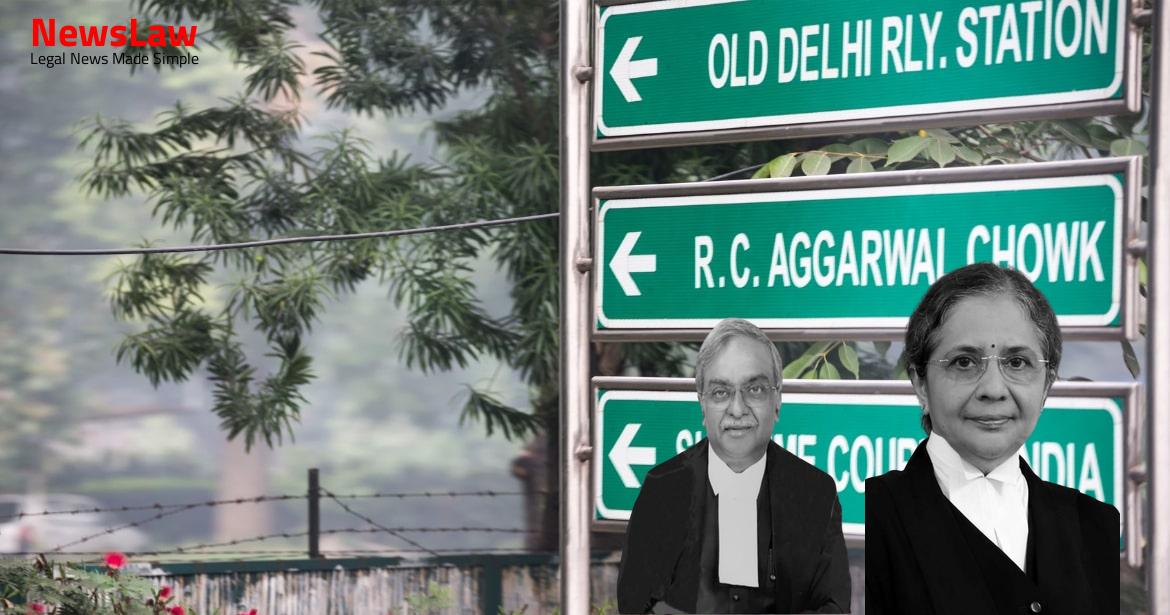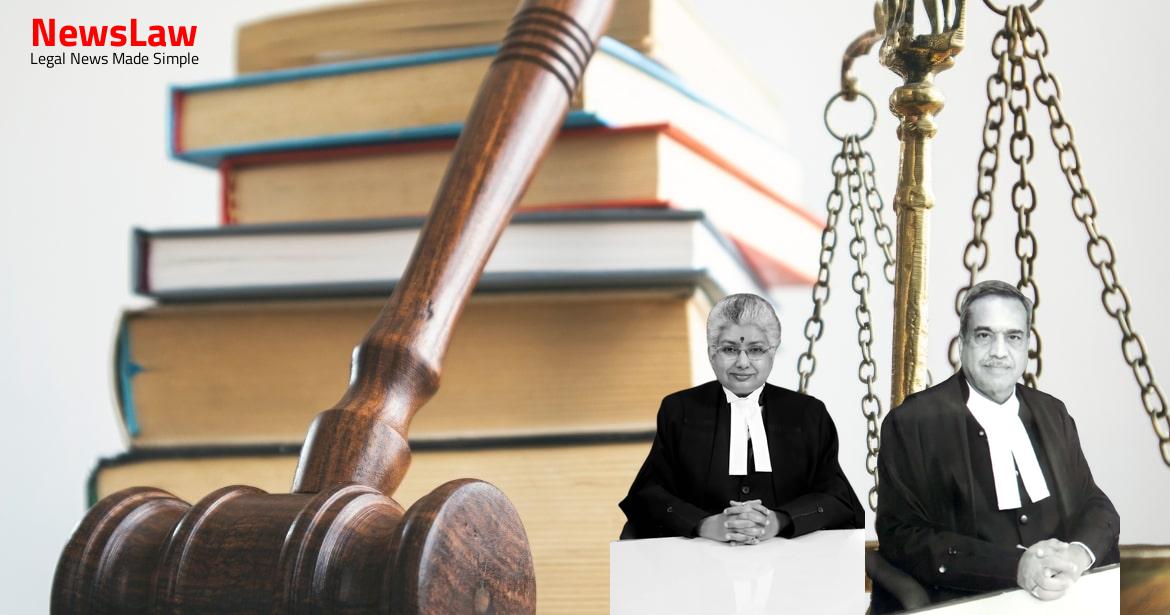In a recent landmark judgment, the Supreme Court of India addressed the quashing of detention orders in the case of Ashok Kumar Jalan and Amit Jalan. The court’s decision sets a precedent in ensuring the protection of individual rights and upholding the rule of law. Let’s delve into the details of this significant legal case.
Facts
- The detenus filed representations under Article 22(5) of the Constitution of India against the detention orders
- Ankit Ashok Jalan filed a writ petition challenging the detention orders for his father and brother dated 01.07.2019
- The writ petition was opposed by the Detaining Authority
- Leave granted in Special Leave Petition (Criminal) No. 7010 of 2019
- Detenus apprehended on 10.06.2019 and served with relied upon documents on 04.07.2019
- Detention orders served while detenus were in custody on 01.07.2019
- The detenus were detained based on specific intelligence and statements of another individual
- The Chief Metropolitan Magistrate rejected the bail plea and remanded the detenus to judicial custody till 18.06.2019.
- The High Court of Delhi allowed the writ petition and quashed the detention orders PD-12001/34/2019-COFEPOSA and PD-12001/35/2019-COFEPOSA dated 1.7.2019.
- Union of India through the Detaining Authority has filed the present appeal against the High Court’s decision.
- The detenu has also filed a special leave petition challenging the High Court’s judgment and order on grounds ‘C’, ‘D’, ‘E’, ‘F’, and ‘G’.
- Writ Petitions (Criminal) 204/2019, 206/2019, and 209/2019 were filed under Article 32 of the Constitution of India regarding the interpretation of Section 13 of the COFEPOSA Act.
- Shri Anand, Shri Ashok Kumar Jalan, and Shri Amit Jalan were brought before the Chief Metropolitan Magistrate from judicial custody on 2.7.2019.
Also Read: Dispensation with Personal Appearance in Criminal Case: Landmark Judgement by Supreme Court of India
Arguments
- The Detaining Authority failed to supply the retraction statement of Shri Anand to the detenus, which was a vital document in the case.
- The retraction petition of Shri Anand, dated 22.6.2019, was crucial and had a significant impact on the complicity of the detenus in the alleged activities.
- The Detaining Authority did not consider the retraction petition of Shri Anand before passing the detention orders on 1.7.2019.
- The decision in the case of Noor Salman Makani v. Union of India was relied upon in support of the argument.
- The Detaining Authority recorded satisfaction regarding the custody, likelihood of release, and propensity to engage in prejudicial activities, but did not show the same consideration to the retraction made by Shri Anand.
- The Detaining Authority was aware of the contents of the retraction by Shri Anand, which could have influenced their decision, but the document presented was actually a bail application and not a retraction statement.
- The High Court quashed the detention orders mainly due to the Detaining Authority’s failure to consider the imminent possibility of the detenus being granted bail.
- The Detaining Authority and prosecution were the only ones aware of the detention proposal, and it was their duty to call for all relevant records.
- The Detenus were released on bail after the High Court’s order, proving the Detaining Authority’s subjective satisfaction was vitiated.
- The Detaining Authority did not make a detailed consideration of the retraction made by Shri Anand, even though it was aware of it.
- The detenus were released subsequent to the order of detention as apprehended by the Detaining Authority.
- Quashing the detention order would allow the detenus to engage in prejudicial activities causing harm to society and the economy.
- The decisions in the cases of Rekha and T.V. Sravanan are not applicable to the current case.
- The detention orders were based on valid grounds and the imminent release of the detenus on bail justified the preventive detention.
- The delay in deciding the representation does not vitiate the detention orders.
- Even if a person is in judicial custody, preventive detention can be justified if the Detaining Authority is aware of the custody status and believes the detainee is likely to engage in prejudicial activities upon release.
- A detention order can be passed for a person already in custody if the authority is aware of the custody status.
Also Read: The Jodha Ram vs. Kaushaliya Dispute: Supreme Court Judgement Summary
Analysis
- Actions done in good faith will be protected under Section STA.
- Petitioners can take further action against the Detaining Authority if permissible by law.
- The Detaining Authority passed detention orders knowing that the detenus were in custody and there was a real possibility of them being released on bail.
- Detention orders were quashed by the High Court mainly on the grounds of failure to consider the possibility of bail and non-consideration of Anand’s retraction statement.
- The Detaining Authority’s awareness of the detenus being in custody was crucial in justifying the detention orders.
- Non-placement of bail application or order refusing bail did not affect detenus’ rights unless relied upon by the authority.
- Detention orders were revoked by the High Court due to alleged lapses by the Detaining Authority in considering bail possibilities and the retraction statement.
- The Detaining Authority did not need to consider Anand’s retraction petition since the detenus were in custody at the time of detention.
- The Detaining Authority’s subjective satisfaction was integral, considering the possibility of detenus being granted bail.
- One of the detention orders was handwritten, and the other was typed.
- Opposing bail and questioning its granting in a higher court were suggested as a proper course of action.
- Non-placement of bail-related documents did not amount to relevant material suppression unless relied upon by the authority.
- In the specific context of preventive detention, the order can be validly passed against a person already in custody.
- The grounds of detention must indicate that the Detaining Authority was aware of the person’s existing custody.
- The Detaining Authority must be satisfied that the person is likely to be released and engage in prejudicial activities post-release.
- The decision to detain someone already in custody should be based on the individual circumstances of the case.
- The Detaining Authority must show awareness of the existing custody of the person and consider it while making the detention order.
- Even if the person is already in custody, anticipation of their release based on cogent material and past activities can justify a valid detention order.
Also Read: Contractor vs. FCI: Determination of Profit and Wage Dispute
Decision
- Writ Petition (Criminal) Nos. 204/2019, 206/2019 and 209/2019 were filed under Article 32 of the Constitution of India.
- Petitioners sought declaration that the disjunctive ‘or’ in Section 13 of the COFEPOSA Act be read as ‘and’.
- During the hearing, petitioners did not make submissions supporting their prayer.
- Judgment in Criminal Appeal from SLP No. 7010/2019 found no merits in the writ petitions, resulting in their dismissal.
- High Court’s decision to quash detention orders and interfere with Detaining Authority’s satisfaction was deemed as a grave error.
- Detaining Authority’s appeal in Civil Appeal from SLP No. 7010/2019 was allowed, quashing High Court’s order and restoring detention orders of Ashok Kumar Jalan and Amit Jalan.
- Detenus were ordered to be taken into custody forthwith by the Detaining Authority.
- Special Leave Petition (Criminal) No. 7013/2019 filed by the respondent was dismissed.
Case Title: UNION OF INDIA Vs. ANKIT ASHOK JALAN
Case Number: Crl.A. No.-001746-001746 / 2019



